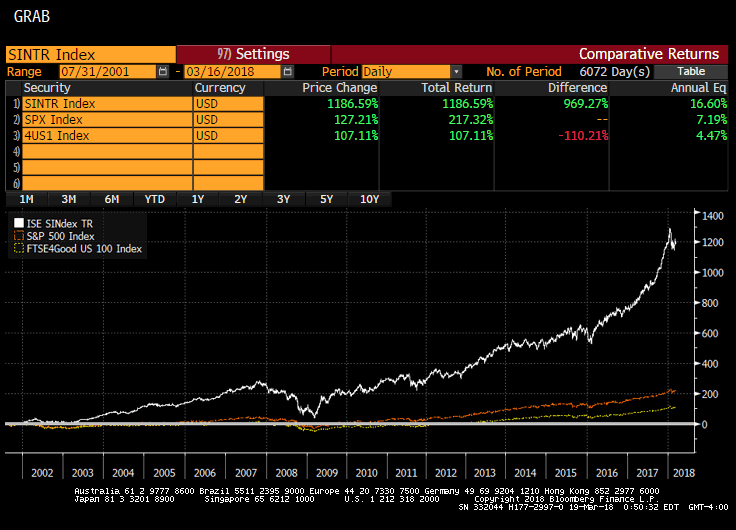When discussing ESG, performance can and should matter almost as much as the environmental, social and governance factors measured. Unfortunately, many ESG funds have historically underperformed both their benchmarks and vice counterparts, and it is important to understand why in order to improve future performance.
Traditionally, ethically-oriented investing has often taken a negative approach of excluding industries like tobacco or oil drilling rather than a positive approach of measuring trees planted, jobs created, or crises avoided. This negative screening approach tends to screen out highly profitable sectors of the economy (like tobacco and alcoholic beverages), and so these funds tend to underperform the broader market, and especially underperform “vice funds” that focus on these excluded sectors. Below the vice fund VICVX (net of a 1.2% management fee) has outperformed the S&P from 2002 until late 2018, while the socially responsible fund LMRNX has underperformed except during the early 2009 low.

Another comparison I made over 10 years ago, when I helped Bear Stearns launch a structured note linked to the outperformance of the ISE SINdex vs the S&P 500, shows how vice has literally “killed it”:

The short conclusion is that socially responsible investing specifically, and ESG more generally, may not be as simple as excluding profitable businesses you don’t like.

